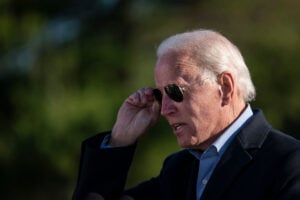The COVID-19 pandemic has forced business leaders across all industries to rethink their operations and how they fund them. Contingency fee law firms were not spared and faced unique, serious challenges throughout the pandemic. However, we have also seen opportunities surface, allowing “Smart Money” self-financed law firms to grow exponentially post-pandemic.
Law firm financing comes into the discussion as contingency fee law firms continue to feel the effects of the stay-at-home orders that resulted in intakes being down, and cases taking longer to resolve due to court closures. The true impact of these events is expected to become even more prevalent for contingency fee firms in the next 6-12 months as they experience a resulting cash flow interruption.
In today’s economic environment, it is more critical than ever that law firms choose the right financial partner to facilitate smart business decisions. For trial lawyers, this can mean the difference between investing in catastrophic injury cases with higher revenue generating potential versus maintaining steady, lower financial investments in the higher-volume cases like automobile accident claims.
Having the financial flexibility to make the choice of where to deploy more or less case investment is a key driver for growth and expansion as it ultimately often leads to bigger settlements and verdicts – a win-win for both the law firm and their clients.
Self-financing traps working capital from growth initiatives
Contingency fee law firms have alternatives when it comes to paying for case costs. One approach is to pay for case costs out of the law firm’s revenue; a common strategy employed by self-financed law firms. While this approach saves the firm from taking on debt, it’s also limiting, as the number of new cases a firm can pursue is potentially restricted by the firm’s ability to pay for case costs. Additionally, self-financed law firms are essentially giving their clients interest-free loans.
To make matters worse, these firms are using their after-tax dollars to provide these interest free loans. This occurs when law firms earn their fees, pay their taxes and then use a portion of those after-tax dollars to pay for their clients’ case costs. This is not a business model that makes sound business sense, let alone in the current environment when liquidity is king and lending interest rates are highly competitive.
There are likely many better uses for a law firm’s after-tax dollars than sitting in their cases depreciating over time. Law firms that pay for case costs “out-of-pocket” are counsellors and creditors, lawyers and lenders to their clients. This can make for difficult, sometimes conflicting financial decisions when it comes to accepting new cases or hiring the team of experts that may be necessary to achieve to maximum and just compensation for your clients. Being stuck in a cycle of deciding on whether to invest in cases or the growth of your law firm is a pain point that many self-financed law firms face. This often leads to giving away revenue by referring on cases that could have been represented in house.
Traditional bank lending could limit growth opportunities
Another option available to contingency fee law firms is to obtain a loan or a line of credit from a traditional bank. However, the true assets of a contingency fee law firm are its cases and many of them are due to settle far into the future. Traditional banks struggle to appreciate this fact and are not equipped to value a law firm’s case inventory as collateral for lending purposes – ignoring the true value of the firm.
Traditional banks are more accustomed to traditional lending models that rely on accounts receivables or hard assets that can be recovered easily.
Additionally, traditional banks typically have annual clean-up provisions, restrictive lending requirements, and other constraints that might not sync well with a contingency firm’s cash flow needs.
Case-cost financing offers a win-win
Case cost financing can help law firms pay for their litigation expenses and preserve the precious capital they need to grow and invest in their business. Various case-cost financing solutions provide a range of options for law firms and their funding needs.
By offering a master line of credit specifically for case costs, and providing tools to monitor, track and manage the related financial accounting, all provided with single digit bank rates, case-cost financing from a bank provides a tremendous opportunity that derives benefits to law firms looking for staying power or accelerated growth.
Contingency fee law firms should never feel the need to settle for less or refer-out their cases due to capital constraints. Even if the firm has an abundance of cash on hand to cover their litigation costs, it doesn’t mean that it should.
In today’s competitive landscape and low interest rate environment, smart money law firms are taking a hard introspective look at their approach their law firm capitalization and seeking more tax efficient strategies to managing their case costs.
It is clear that seeking financing for case costs can act as a catalyst for accelerated growth coming out of the pandemic. Attorneys that run their law firms like a 21st century business are embracing the opportunity to finance their case costs as it provides a win-win solution for their business and their clients.
Learn more about case-cost financing at EsquireBank.com
For more expert insights on how to succeed in a post-pandemic legal landscape, register for our webinar, “Bold Moves: Driving Rapid Growth and Resilience Post-Pandemic,” on 21 June: Save your spot.













 Kathryn Rubino is a Senior Editor at Above the Law, and host of
Kathryn Rubino is a Senior Editor at Above the Law, and host of 
 Ellen Trachman is the Managing Attorney of
Ellen Trachman is the Managing Attorney of 

